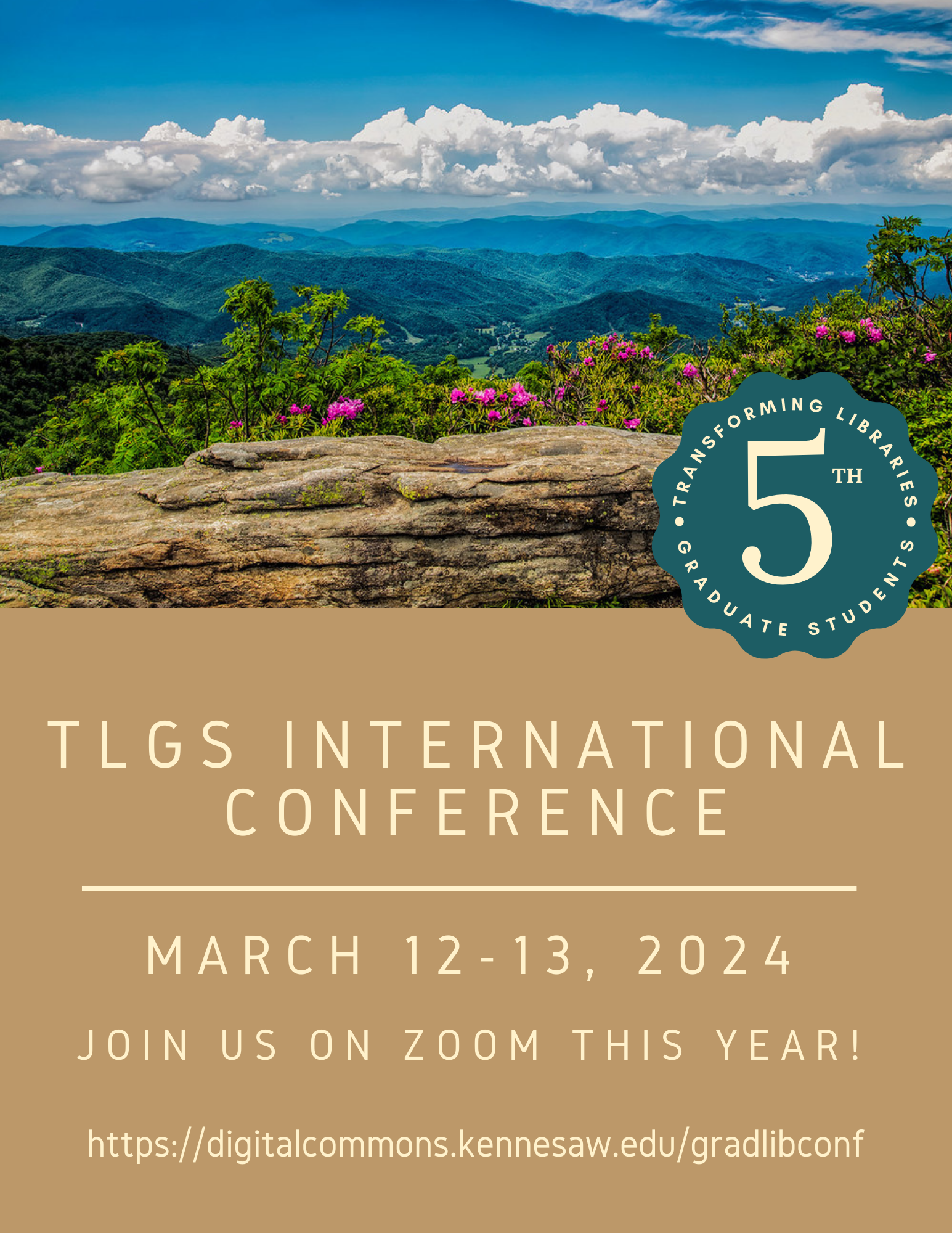Start Date
3-13-2024 12:30 PM
End Date
3-13-2024 1:00 PM
Keywords
graduate education, graduate students, credit-bearing library courses, scholarly communication
Description of Proposal
For years, library faculty at the Graduate Center of the City University of New York had fantasized about some day offering a credit-bearing course to our master’s and doctoral students. In 2021, we finally transitioned from idle dreams to directed discussion. As we explored how to get a library course on the books at an institution that had never before had one, we had to rethink and rework our plans several times, in unexpected but not unreasonable ways.
For example, we had believed that a one-credit course would be most appropriate—and most palatable to the institution—but we learned that only a three-credit course would be viable. Also, we had initially imagined a course primarily about library research, covering topics such as advanced database searching, evaluating sources, and using archival collections, but we ultimately refocused the course on scholarly communication topics.
However, the term “scholarly communication” is arguably jargon, so, in order to make the course inviting and appealing to students, we kept “scholarly communication” out of the course title and description. We landed on the title “Intricacies and Ethics of Scholarly Information,” with this description:
“This course is an opportunity to step back and consider the scholarly information landscape that you inhabit as a graduate student and researcher. We will explore traditional and emerging forms of scholarship, how works enter the scholarly record, and how they’re discovered, accessed, and evaluated. Throughout, we will also ask whose perspectives are excluded, whose contributions are undervalued, and how the systems at play reproduce biases and compound inequities. We will also turn the lens on ourselves, examining both the ethical implications of our participation in this ecosystem and the ways in which we can contribute to a more equitable future.”
The course was taught for the first time in Summer 2023, and there is student, library, and institutional enthusiasm for making the course a regular offering. However, there are many questions about how to achieve this at an institution facing steep budget cuts, with a library unlikely to be able to add faculty.
In this presentation, the course’s inaugural instructor will discuss how the library got from fantasy to proposal to a slot on the summer schedule. She will also describe how she built the syllabus and pursued pedagogical training in preparation for teaching her first-ever credit-bearing course. Finally, she will share her impressions of how the first iteration of the course went, as well as her plans for adjusting the course in the future.
Teaching a Credit-Bearing Library Course for Graduate Students: From Proposal to Postmortem
For years, library faculty at the Graduate Center of the City University of New York had fantasized about some day offering a credit-bearing course to our master’s and doctoral students. In 2021, we finally transitioned from idle dreams to directed discussion. As we explored how to get a library course on the books at an institution that had never before had one, we had to rethink and rework our plans several times, in unexpected but not unreasonable ways.
For example, we had believed that a one-credit course would be most appropriate—and most palatable to the institution—but we learned that only a three-credit course would be viable. Also, we had initially imagined a course primarily about library research, covering topics such as advanced database searching, evaluating sources, and using archival collections, but we ultimately refocused the course on scholarly communication topics.
However, the term “scholarly communication” is arguably jargon, so, in order to make the course inviting and appealing to students, we kept “scholarly communication” out of the course title and description. We landed on the title “Intricacies and Ethics of Scholarly Information,” with this description:
“This course is an opportunity to step back and consider the scholarly information landscape that you inhabit as a graduate student and researcher. We will explore traditional and emerging forms of scholarship, how works enter the scholarly record, and how they’re discovered, accessed, and evaluated. Throughout, we will also ask whose perspectives are excluded, whose contributions are undervalued, and how the systems at play reproduce biases and compound inequities. We will also turn the lens on ourselves, examining both the ethical implications of our participation in this ecosystem and the ways in which we can contribute to a more equitable future.”
The course was taught for the first time in Summer 2023, and there is student, library, and institutional enthusiasm for making the course a regular offering. However, there are many questions about how to achieve this at an institution facing steep budget cuts, with a library unlikely to be able to add faculty.
In this presentation, the course’s inaugural instructor will discuss how the library got from fantasy to proposal to a slot on the summer schedule. She will also describe how she built the syllabus and pursued pedagogical training in preparation for teaching her first-ever credit-bearing course. Finally, she will share her impressions of how the first iteration of the course went, as well as her plans for adjusting the course in the future.




What takeaways will attendees learn from your session?
Attendees will learn how one library approached the proposal and development of a three-credit course for graduate students, as well as how the course’s inaugural instructor approached syllabus design and pedagogy. Attendees will be provided with a copy of the syllabus, which they may adapt for their own institutions.